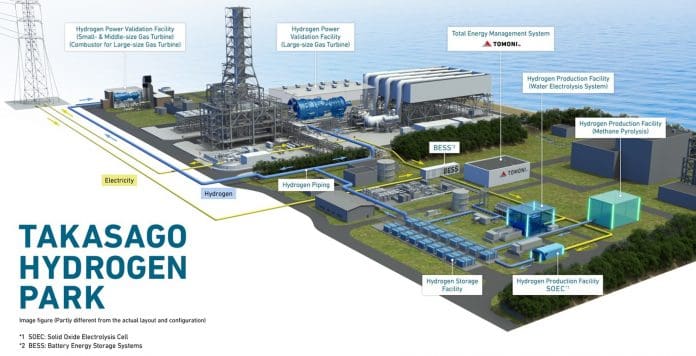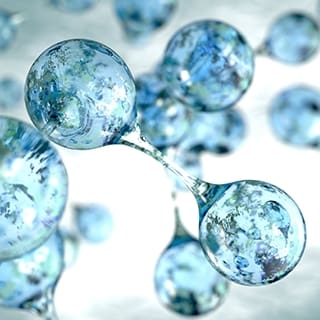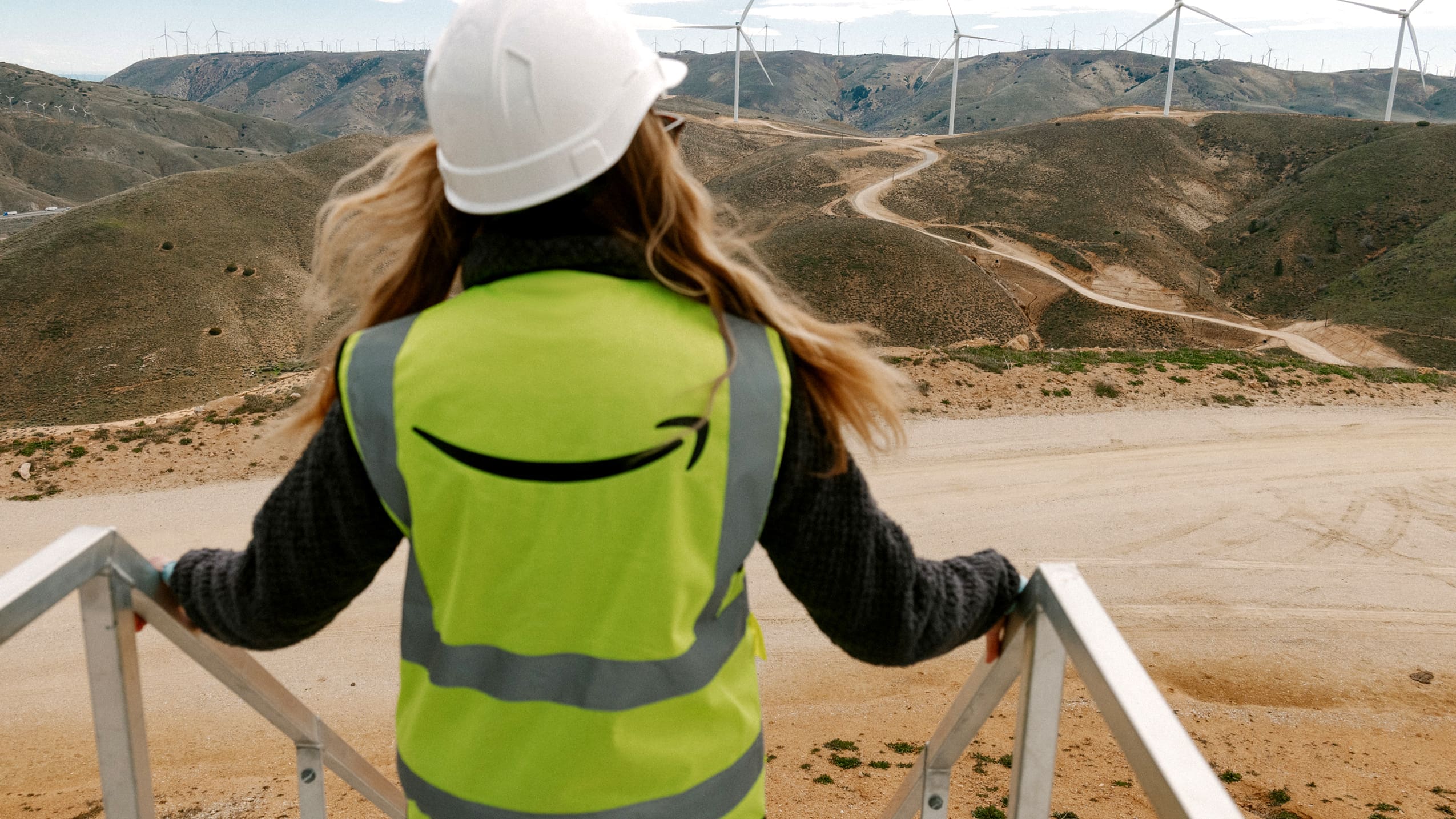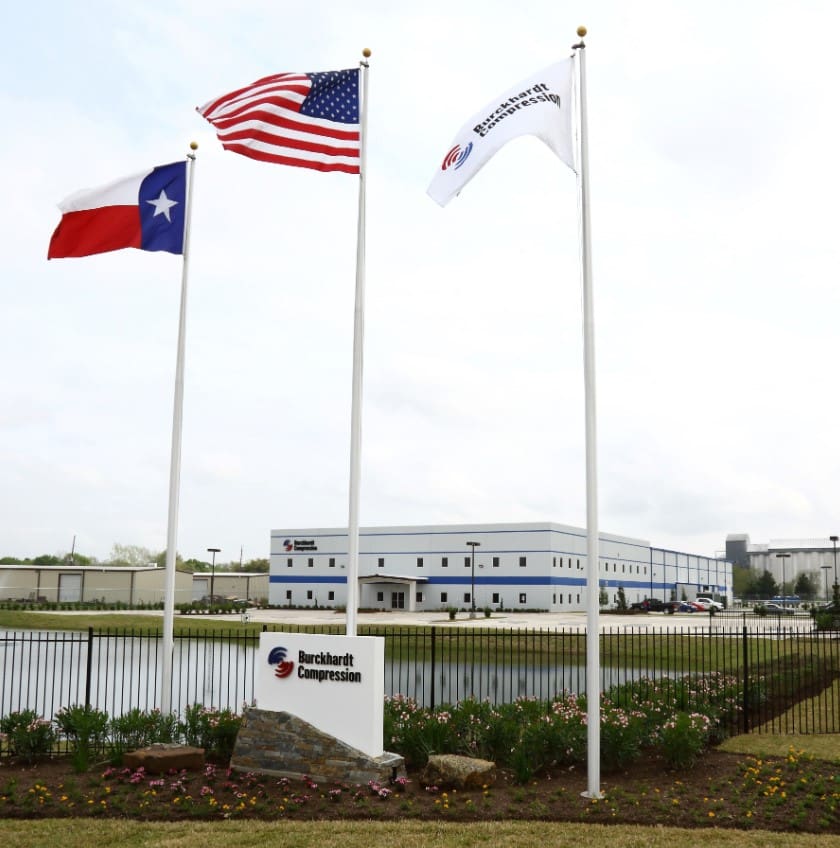Mitsubishi Power, a subsidiary of Mitsubishi Heavy Industries (MHI), will establish a hydrogen demonstration center to validate the full value chain of hydrogen-related technologies — from hydrogen production to power generation. The Takasago Hydrogen Park will be co-located at the gas turbine development and manufacturing facility of Mitsubishi Power’s Takasago Machinery Works in Hyogo Prefecture, Japan, to support the commercialization of hydrogen gas turbines using hydrogen as fuel.
Mitsubishi Power has already announced its 30% hydrogen co-firing for large-frame gas turbines and will use the Takasago Hydrogen Park to commercialize small- and large-frame gas turbines on a path to 100% hydrogen firing starting in 2025.
Takasago Hydrogen Park will be located adjacent to the T-Point 2 combined cycle power plant validation facility. Mitsubishi Power is beginning to test and demonstrate operations of technologies including hydrogen production and storage and hydrogen fueling of gas turbines, aiming to commence operations in fiscal year 2023. The hydrogen production facility utilizes a water electrolysis system, and Mitsubishi Power plans to conduct successive testing and verification of other next-generation hydrogen production technologies such as turquoise-hydrogen production by pyrolysis of methane into hydrogen and solid carbon.
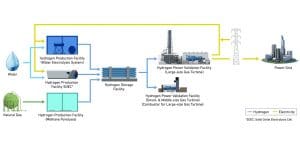
An integrated system for all aspects of hydrogen-related technologies, from development to demonstration and verification, will be established at the Takasago Machinery Works. For the combustion chamber, the key component of hydrogen gas turbines, Mitsubishi Power will create a workflow that includes development, design, production of an actual machine at the manufacturing plant, and validation testing at the demonstration facility. Mitsubishi Power’s gas turbine development process encompasses verification testing of all elements at the basic design stage, the incorporation of those results in the detailed design, and finally validation using an actual machine. Completing this development cycle within the same plant will allow for quicker and more certain product development and commercialization, the company said.
The T-Point 2 facility conducts long-term reliability validation of newly developed technologies, including verification of the next-generation J-series air-cooled (JAC), large-frame gas turbines, high-efficiency systems that have achieved the world’s first turbine inlet temperature of 3002°F (1650°C), conducting operations equivalent to an actual power station while connected to the local power grid. This facility began long-term verification testing on July 1, 2020, as a 566-MW class gas turbine combined cycle power generation facility.
To support the commercialization of hydrogen gas turbines by 2025, verification of large gas turbines is being conducted at the T-Point 2 facility for power generation using a JAC class turbine initially starting at 30% hydrogen co-firing and increasing hydrogen co-firing over time. Testing for 100% hydrogen firing of small- and mid-sized turbines will be conducted using a H-25 class gas turbine.
As part of its energy transition strategy, MHI is building a value chain for hydrogen, from production to use, through the further integration and advancement of the existing energy structure and hydrogen-related technologies. By further developing this approach and linking it to many different types of industries centered on hydrogen, MHI aims to establish a hydrogen ecosystem that will form the basis of a sustainable society and accelerate its commercialization through verification at Takasago Hydrogen Park.



